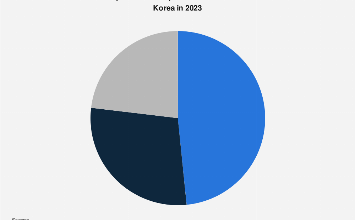Yemenis struggle with unauthorized reselling of phone numbers · Global Voices

Yemenis grapple with privacy concerns as telecom companies resell phone numbers

Yemenis are expressing concern about the reselling of their longstanding phone numbers to other customers without without notice, leading to privacy breaches, while telecommunication companies remain silent on the matter. Screenshot from a 2019 video by AlHadath about Houthis control of the telecommunication sector. Fair use.
This post by Aseel Sariyah was first published by SMEX on April 18, 2024. An edited version is republished on Global Voices as part of a content-sharing agreement
“Why is your daughter sharing her pictures via WhatsApp?” a question directed by an employee of the Yemen Oman United (YOU) telecommunication company to a customer who visited the company’s office in Taiz to complain: his daughter’s phone number, the one she uses for WhatsApp and other social media platforms, had been sold to another person.
Yemeni community activist Mohammed Abdullah witnessed this incident while visiting the company’s headquarters for personal transactions. He recounted that the complainant spoke about instances of blackmail and abusive messages directed towards his daughter and her friends by the individual who acquired her number, to SMEX.
Recently, numerous complaints have surfaced on social media from users expressing discontent over strangers sharing their long-standing contact numbers. Yemeni telecommunications companies have remained conspicuously silent, refraining from issuing official statements.
Yemeni phone companies, including Yemen Mobile Communications Company, Sabafon, and YOU (formerly MTN), have been reselling inactive numbers, even if they’re regularly paid for, due to a combination of factors, including the ongoing conflict since 2014. This conflict has worsened operational challenges for telecommunication companies. The introduction of 4G services has also led to a surge in demand, overwhelming companies’ capacity to allocate new numbers. Consequently, inactive or expired numbers are being reissued to meet the demand for new subscriptions. Mismanagement could also contribute to this issue.
Continued confiscations: A persistent trend
In 2022, Yemen Mobile Communications Company, jointly owned by the state, private sector, and trust funds, introduced fourth-generation (4G) services to the Yemeni market. The surge in demand overwhelmed the company’s capacity to allocate new numbers, leading to the utilization of inactive or expired numbers, presumed neglected by their owners for a specific duration.
Yemeni human rights activist Shrouk al-Refaee discovered that her private phone number had been reassigned to another person. In an interview with SMEX, she revealed that the individual who acquired her number impersonated her, soliciting money from her friends and relatives under the guise of financial distress. The impostor also asked her friends to share private photos. Al-Refaee remained unaware of the situation until one of her friends suspected something was wrong.
“This ordeal has significantly impacted my life, leading to severed connections with several acquaintances and friends,” al-Refaee shared with SMEX. Despite regular mobile credit top-ups, she emphasized that the telecommunications company sold her number without prior notice. Upon approaching the company, she faced a hefty fee for number retrieval. Al-Refaee’s number was crucial as it served as the authenticator for her social media accounts, linked to features like two-step verification.
Yemeni journalist and human rights specialist Issam Balghaith, faced a similar predicament. After enduring years of detention by the Houthi movement Ansar Allah in Sanaa before his release in 2022, he lacked proper identification documents to purchase a SIM card. Balghaith sought assistance from a friend to obtain a new number from YOU in Ma’rib. However, his WhatsApp access was abruptly cut off after a few days. Dialing his number from another phone, he discovered that another person had purchased it.
Realizing that rectifying the issue through the telecommunications company might be a protracted process, Balghaith, whose lost number was crucial for his professional life, opted to contact the purchaser directly. Surprisingly, retrieving the number was easy, as the individual was easily convinced. However, when Balghaith visited the company’s headquarters to address the issue, he only encountered apathetic employees unwilling to assist.
In 2021, the telecommunications entity MTN, a South African multinational corporation and mobile telecommunications provider was sold to non-Yemeni investors, rebranding it as the YOU company. The government in Aden denounced the sale as illegal. Consequently, a decree was issued to prohibit the company from functioning in Houthi controlled-territories, compelling subscribers to switch to Yemen Mobile services. Many tried to preserve their number for WhatsApp usage by topping up balances. Still, these numbers were eventually lost.
The issue extended beyond YOU, impacting subscribers of Yemen Mobile, Yemen’s largest telecommunications provider. As the company rolled out 4G services, its operations expanded, resulting in a surge in subscribers, surpassing ten million. Due to the growing subscriber base, the company introduced a new number category starting with 78.
The experiences encountered by Yemen Mobile users mirror those of YOU users. Ruqaya Danana, a Yemeni journalist based in Aden, recounted in an interview with SMEX how her friends unexpectedly reached out to inquire about her late-night video call attempts, noting changes in her speech pattern and accent, which she had no prior knowledge of.
Like al-Refaee’s ordeal, Danana remained oblivious to the truth until her friend visited her to inquire about the behavior change, as she disclosed to SMEX. She was also consistent with topping up her mobile credit balance for her long-held number to prevent losing it. Danana visited the Yemen Mobile company headquarters in Aden, where employees claimed her phone had been inactive and switched off for some time, leading to the sale of her number. She was advised to “reach out to the buyer” and try to reach an understanding. She was still not successful at the time of writing this article.
This phenomenon extends beyond phone and social media communication, as shown by Muhammad Awad’s experience shared with SMEX. While collecting a transfer sent by a relative at an exchange shop in Ma’rib, Awas was astonished to learn that the number he had owned for many years was registered under another individual’s name, rendering him unable to receive the transfer.
Awad visited the company’s headquarters but was told the number had been sold to another person and no longer belonged to him. They advised him to “contact the buyer of the number and negotiate an understanding.” Awad expressed to SMEX this unexpected development disrupted his workflow, compelling him to post on Facebook and disavowing any association with the number.
The companies’ responses
SMEX approached Yemen Mobile’s Director of Public Relations, Abdul Rahman al-Ziyadi, who clarified that the sale of inactive numbers adheres to a regulatory framework established by the Ministry of Telecommunications. This framework mandates that companies can only introduce new categories after submitting annual reports detailing active numbers. Similar sentiments were echoed by the marketing department at YOU company.
Regarding number confiscation, Al-Ziyadi emphasized that inactive numbers are subject to confiscation after six months of inactivity. Furthermore, they no longer sell confiscated numbers immediately and provide subscribers with a two-month window to reclaim their numbers. However, once the number is transferred to another individual, the company cannot compel the buyer to return it.
YOU clarified to SMEX that the subscriber agreement includes a clause mandating that the subscriber not leave their number inactive for three consecutive months, granting the company the right to withdraw and resell it.
No response was received from Sabafon, based in Sana’a, at the time of the article’s publication.
Telecommunications programming expert Majid al-Aawar suggests that the issue might lie within the companies’ systems, which categorize a number as inactive even if its balance is regularly recharged. Al-Aawar highlighted in an interview with SMEX that companies utilize specific algorithms that automatically deactivate numbers lacking any communication activity.
Furthermore, al-Aawar pointed out that software glitches could also contribute to the swift withdrawal of inactive numbers without proper activity verification. Companies are responsible for rectifying such issues and notifying subscribers if necessary.
Confiscation of privacy
The repercussions of people losing their phone numbers extend far beyond mere ownership; it entails a breach of their security and privacy. Nour Khaled, a Yemeni engineer specializing in digital security, has received numerous complaints over the past three months from individuals who discovered that their numbers were being shared with strangers, particularly among Yemen Mobile users.
In an interview with SMEX, Khaled emphasized that the issue of number confiscation poses one of the gravest challenges due to resulting cases of extortion, especially given that subscribers often utilize their numbers to activate the two-step verification, linking them to all their accounts and digital presence.
Khaled further noted that the only recourse for users in Yemen currently is to activate the two-step verification feature and link it to their email addresses instead of their phone numbers.



